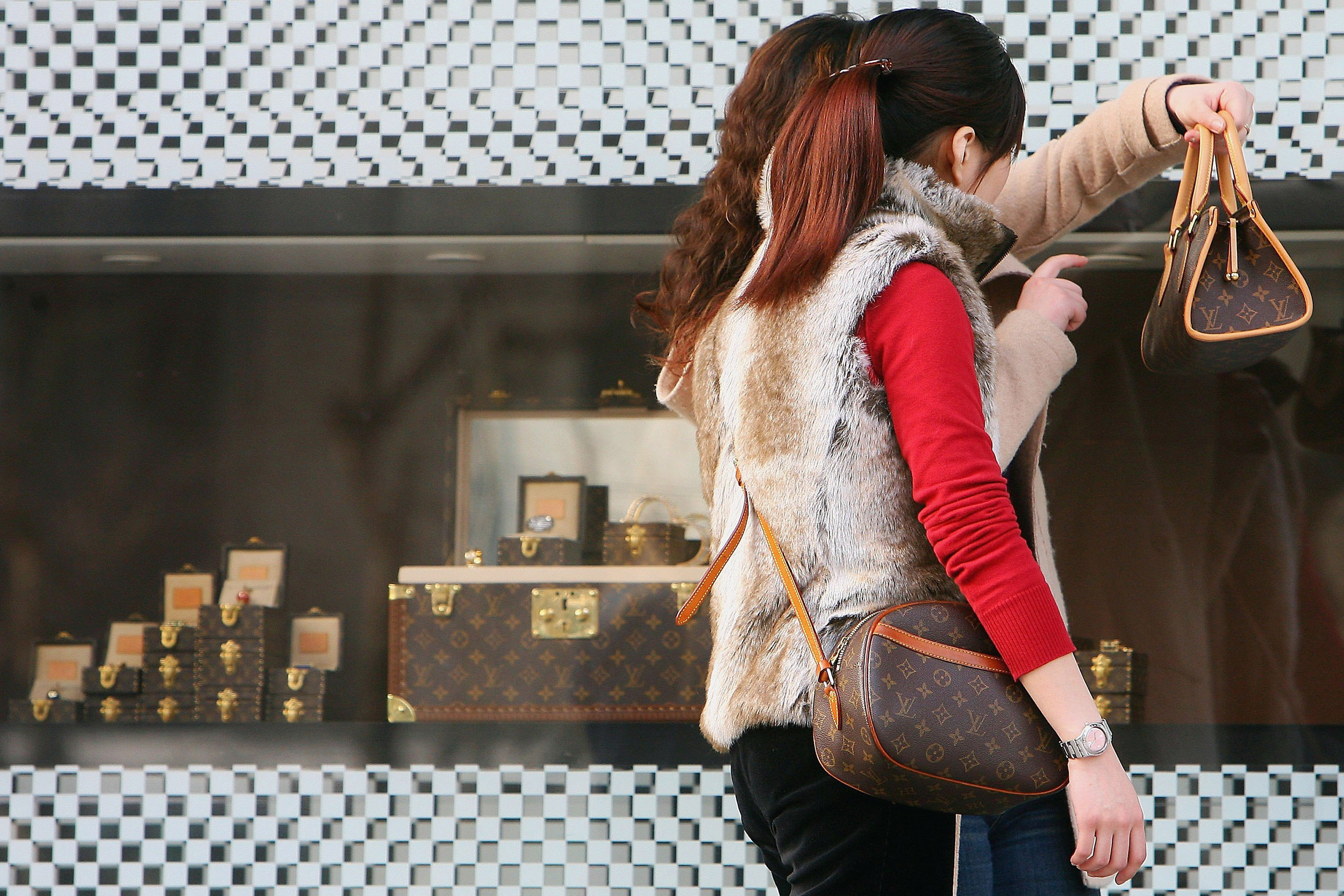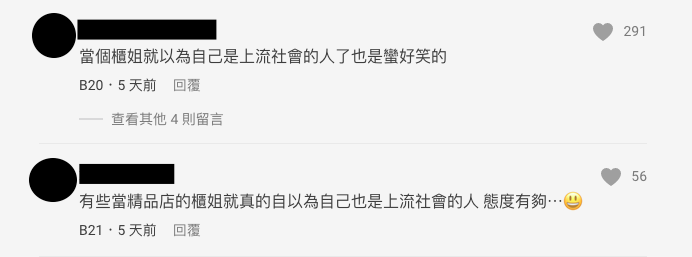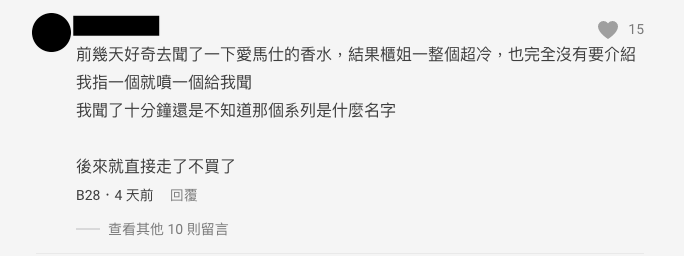"They Can't Afford It" — Salesgirl Exposes Tactics She Learnt Working In Luxury Retail
"But it proved to be true, because he wound up wandering around the store, touched a few things, before leaving without buying anything."
Have you ever walked into a luxury brand store and felt judged by the sales representatives almost immediately?
It turns out, your instincts are probably right!
While grown adults often teach their children to judge people by the content of their character, and not their appearance, it seems as though such a saying hasn't run deep in the world of retail.
On 7 July, an anonymous Facebook user submitted a post to a Taiwanese page called TEEPR 亮新聞, an online news media platform. Apparently working as a sales representative in a luxury boutique, the user divulged her experiences working in the luxury retail sector.
Using the Chinese social media platform, known as DCard, the user explains in detail how she was taught not to waste time on customers who would check prices on the goods in the store, as they would likely be unable to purchase anything at all.
Having worked as a sales associate for seven to eight years, the anonymous user explained how she has worked for both luxury boutiques and luxury cosmetic booths throughout her career.
The user said that while the vast majority of sales reps worked for luxury boutiques, a certain air travelled among those who considered themselves to be 'rubbing shoulders' with the wealthy.
She stated in her confession, "Because the customers in contact with them have a relatively high spending power, they will also classify themselves into the upper-class circle, when in reality, they are just sales associates."
Commenting on her early days working in the retail industry, the user embellished on how her employer would rank customers when it came to their likelihood of purchasing a product
"The team leader of the [luxury boutique] I worked for told me that there are three types of customers who would come into the store.
One has absolutely no money [to afford anything in the store]; one has the potential to afford something, but would likely pay in instalments; and, one can afford it, though they have no taste."
After learning of this 'hierarchy' when categorising customers, the anonymous writer explained that she was taken aback by the stereotyping and the discrimination against potential customers, "I felt that it was too poor to classify them. As long as they walk in, there is still a likelihood they would purchase something. Why must we discriminate?"
Unfortunately, the user went on to explain that over time, the echelon system for guests that would visit the store seemed to manifest itself as fact rather than a cliché.
"I was scolded for entertaining a customer that showed no 'potential' to buy anything"
Recalling one of her experiences, the user details an occasion where she was berated by her team manager for wasting time on a guest who did not look like a potential customer.
"I still remember [one time] when I went to serve a customer. He was dressed in dingy clothes. Out of nowhere, the team manager was in my ear, telling me that I should not waste my time paying attention to customers who weren't likely to spend any money in the store."
Unfortunately for the user, the manager proved to be right, as the customer continued wandering aimlessly throughout the store, and touched a few products before eventually making an exit.
After learning the ropes and understanding the ecosystem in luxury retail, the user noted how the wealthiest customers don't even step into the store
These customers would instead ring up a staff member to place an order for the items they fancy, before having it shipped straight to their homes, eliminating the need to make a trip to the store.
Commenting on customers who do shop in the stores, the writer mentioned how the truly wealthy ones wouldn't even touch a single bag, let alone turn over price tags, "They usually point at a bag or two and say 'I don't want this one', signalling to pack up all the other bags except that one singled out. In just one month, we could deal with anywhere between three to four of these customers".
The user took her confession a step further by exposing the tactics carried out by certain retail workers when they spot a particular kind of 'customer' who enters the store, "Some of them will go the extra mile, accompanying these customers for drinks, or even spending the night with them. The very next day, she'll have a new bag in her hand too."
Concluding her overall statements, the user believes that these subtle (or not so subtle, depending on your take) practices and labels exemplified by customers, have somewhat reinstated the prejudice and classist behaviour of some sales representatives in these luxury retail stores.
Nonetheless, the user ended her confession on a positive note, stating that her hope is for readers to not paint all of them with the same brush, and that there are some genuinely good sales reps out there.
Since sharing her experiences on the platform, many have commented under her story — some were outraged, while others were purely entertained
Though the majority of responders oscillated between positive and negative reactions, most of the comments were surprised that these discriminatory practices are still alive behind closed doors in the retail industry.
In translation, one user stated, "I used to go to boutiques and check out these items in real life to try them on. But I was discriminated against by a sales assistant once, who looked down on me. After that, I try not to visit boutiques in person anymore."
Some other comments also poked fun at the apparent smug and arrogant sales representatives, who think they are part of a 'higher society' just because they occasionally serve wealthy customers.
Others shared their bad experiences with retail workers when they visited luxury goods stores. One user explained how a saleslady was cold to them when they visited a Hermès store to smell a perfume.
Another recalled how one sales associate told her not to touch a bag if she didn't want to buy it, proceeding to then to rudely tell her to "Not waste her time."
One user took the high road, saying to forge a complain at the service desk if a sales executive were to be rude and dismissive.
Yet through all the frustration, some comments added comic relief to the mix, exemplifying seeing the brighter and more humorous side of things
One person shadily wrote, "I wouldn't waste my time with one of those sales representatives either," while another said, "I am poor, don't waste your time on me, I'll be glad shopping on my own."
Another comment even fessed up to her shopping habits, saying, "I love checking price tags, I guess it means I'm poor!"










